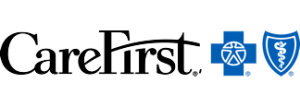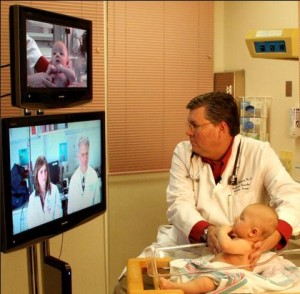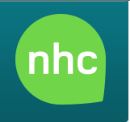- Who Falls Into the Medicare Donut Hole? (fool.com)
Medicare donut hole forces participants to face an expensive gap in coverage in their Part D prescription drug plans… the costs of prescription drugs covered by a plan get split up in various ways, depending on your total prescription costs for a given year… donut hole simply forced participants to pay these additional drug costs entirely on their own, causing huge financial stress… Affordable Care Act,…started to fill in the donut hole… Over time,..discounts will gradually rise…by 2020, participants will pay only 25% of the net cost of brand-name and generic prescription drugs.
- Price to jump for most popular health plan on Maryland insurance exchange (washingtonpost.com)
The price of…health plans sold through Maryland’s insurance exchange will jump, on average, by about one quarter next year, fueling questions about whether coverage under the Affordable Care Act will remain affordable in the state…26 percent average increase in monthly premiums are for CareFirst plans, which cover three-fourths of the state residents who have bought insurance under the federal health-care law. The price jump,…is among rate changes that the state’s insurance regulators have approved for plans sold to individual families and small businesses.
- CVS Health expands its care reach (healthcareitnews.com)
ACA (Affordable Care Act), primary care doc shortage, aging population, chronic disease make this telehealth's moment..CVS is working with three telehealth companies -- American Well, Doctor On Demand and Teladoc -- on how, together with pharmacies, they might expand and improve on...patient care.
- Community health centers on the rise: HHS to fund 266 new sites (fiercehealthcare.com)
Department of Health and Human Services will fund 266 new primary care community health center sites in high-need areas nationwide to the tune of $169 million.. new sites, infused with Affordable Care Act funds, will increase care access for more than 1.2 million patients, according to HHS, building on $101 million the department gave to the program in May...
- Obamacare punishes hospitals that see poor patients, study finds (vox.com)
An Obamacare program that aims to improve…health care may have an unintended side effect: penalizing hospitals that serve the sickest and poorest patients….penalizes hospitals that have high readmission rates, where patients come back within 30 days. The aim of that program was to encourage doctors to do the best job possible on the first hospital visit, improving patients' experience and saving money by preventing a second trip. Hospitals that have high readmission rates tend to see patients who are less educated, more disabled, and more likely to suffer from depression — factors the Obamacare program doesn't account for.
- Researchers are trying again to help you take your medicine (washingtonpost.com)
physicians, pharmacists and researchers have been frustrated for decades at patients’ inability to…remain on their medication regimens…a round of experiments funded by the Affordable Care Act…offer hope of progress against one of medicine’s most intractable problems….
- One project applies behavioral economics to the problem. Researchers at the University of Pennsylvania gave 1,000 people "electronic pill bottles" when they left the hospital after heart attacks. If they forgot to take their medicine, the cap would light up and beep… If they took their medications,…they became eligible to win small lotteries that offer…prizes.
- In Hawaii, another project, the $14.3 million "Pharm2Pharm" experiment, seeks to connect doctors and pharmacists who dispense medication to patients leaving hospitals with community pharmacists…Community pharmacists often complain that they have no idea which medications their patients are taking, especially when they leave hospitals with new ones and can’t guard against dangerous interactions.
- In Wisconsin, more than 25 percent of the state’s pharmacists took a 12-hour training course, then sought out 100,000 people who appeared to be failing to refill their prescriptions…based on data provided by insurers under a $4.1 million project run by the state’s Pharmacy Society. Most were poor or elderly…Cost is a factor, convenience is a factor,..Lack of recognition of importance or need, health literacy and understanding" all contribute to non-adherence,…
- How health care reform adds to Wal-Mart’s pharmacy woes (washingtonpost.com)
Wal-Mart's second quarter earnings release this week highlighted one of the many effects of more people gaining health insurance under the Affordable Care Act: its pharmacies are no longer as profitable… is seeing lower reimbursement rates from drug insurance plans and a decline in high-margin cash transactions… one of the dirty secrets of the pharmacy industry that uninsured people frequently pay more for drugs than those with insurance…
- ‘Jiffy’ Health Clinics Save Patients Money and Time, Undermine Obamacare (news.heartland.org)
"Jiffy" health care clinics represent one of the fastest-growing sectors of the health care industry, providing quick, convenient, and affordable primary care services without the long waits and higher costs of traditional family practices…In-and-out health clinics exist in states across the country and are often located inside pharmacies, such as CVS and Walgreens, as well as in grocery stores and large retail stores…more than ever, patients are looking for convenient and inexpensive ways to receive care, and the model utilized by in-and-out health facilities offers a seemingly perfect solution.
- Millions in the red, a Nevada Obamacare insurer has failed (reviewjournal.com)
Nevada's health insurance exchange is losing its only locally based carrier. Nevada Health CO-OP, a nonprofit insurer created by the Affordable Care Act and federally funded to offer health coverage through the Nevada Health Link marketplace, said Wednesday that it cannot make enough money to stay in business after Jan. 1…second year of high claims costs and limited growth projections for enrollment made it "clear" the insurer would have a hard time providing "quality care at reasonable rates" in 2016.
- Most Health Insurance Co-ops Are Losing Money, Federal Audit Finds (nytimes.com)
Most federal insurance cooperatives created under the Affordable Care Act are losing money and could have difficulty repaying millions of dollars in federal loans, an internal government audit has found,…the inspector general… said that most of the insurance co-ops enrolled fewer people than they had predicted, and that 22 of the 23 co-ops lost money last year.





